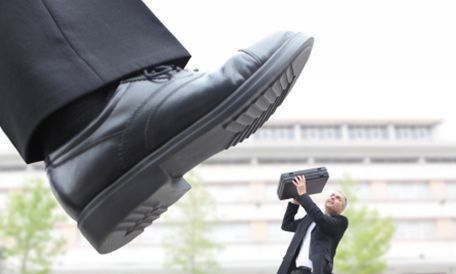英文法律词典 D-89
|
DRAIN. Conveying the water from one place to another, for the purpose of drying the former 2. The right of draining water through another map's land. This is an easement or servitude acquired by grant or prescription. Vide 3 Kent, Com. 436 7 Mann. & Gr. 354; Jus aguaeductus; Rain water; Stillicidium. DRAwhACK, com. law. An allowance made by the government to merchants on the reexportation of certain imported goods liable to duties, which, in some cases, consists of the whole; in others, of a part of the duties which had been paid upon the importation. For the various acts of congress which regulate drawhacks, see Story, L. U. S. Index, h. t. DRAWEE. A person to whom a bill of exchange is addressed, and who is requested to pay the amount of money therein mentioned. 2. The drawee may be only one person, or there may be several persons. The drawee may be a third person, or a man may draw a bill on himself. 18 Ves. jr. 69; Carth. 509; 1 Show. 163; 3 Burr. 1077. 3. The drawee should accept or refuse to accept the bill at furthest within twenty-four hours after presentment. 2 Smith's R. 243; 1 Ld. Raym. 281 Com. Dig. Merchant, F 6; Marius, 15; but it is said the holder is entitled. to a definite answer if the mail go out in the meantime. Marius' 62. In case the bill has been left with the drawee for his acceptance, he will be considered as having accepted it, if he keep the bill a great length of time, or do any other act which gives credit to the bill, and induces the holder not to protest it; or is intended as a surprise upon him, and to induce him to consider the bill as accepted. Chit. on Bills, 227. When he accepts it, it is his duty to pay it at maturity. DRAWER, contracts. The party who makes a bill of exchange. 2. The obligations of the drawer to the drawee and every subsequent holder lawfully entitled to the possession, are, that the person on whom he draws is capable of binding himself by his acceptance that he isto be found at the place where he is described to reside, if a description be given in the bill; that if the bill be duly presented to him, he will accept in writing on the bill itself, according to its tenor, and that he will pay it when it becomes due, if presented in proper time for that purpose; and that if the drawee fail to do either, he, the drawer, will pay the amount, provided he have due notice of the dishonor. 3. The engagement of the drawer of a bill is in all its parts absolute and irrevocable. 2 H. Bl. 378; 3 B. & P. 291; Poth. Contr. de Change, n. 58; Chit. Bills, 214, Dane's Ab. h. t. |








